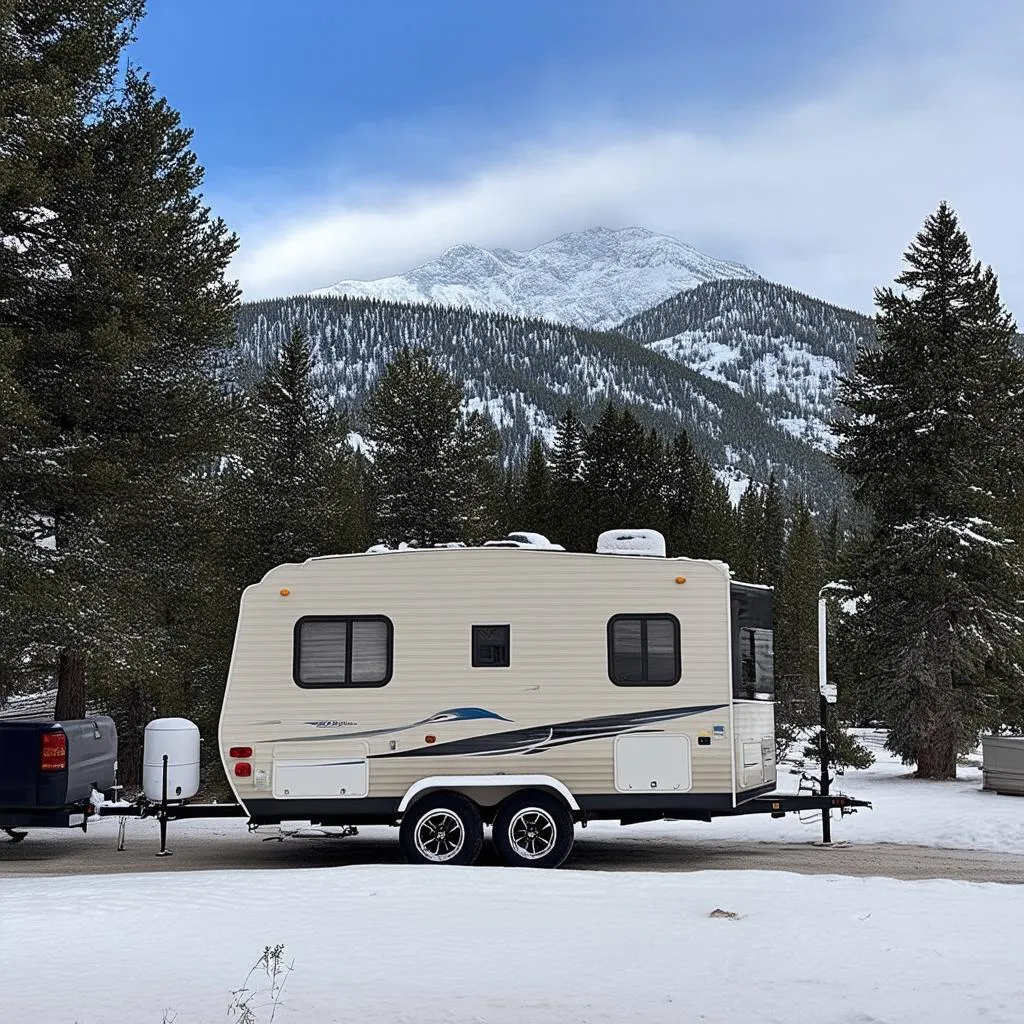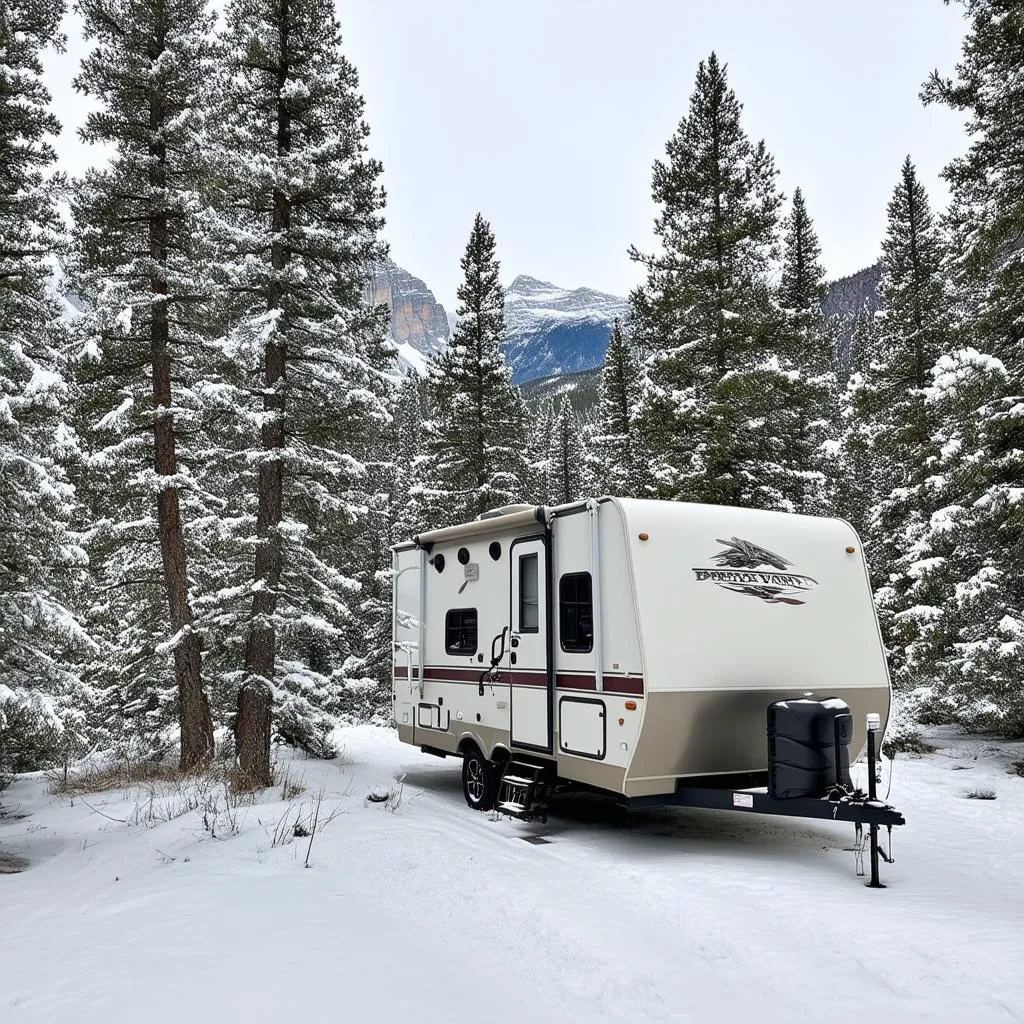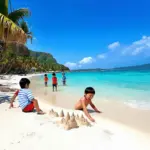“Up north, they know winter.” It’s a common phrase you hear when talking about anything from winter clothing to vehicles built for snow and ice. So, does that wisdom apply to travel trailers built in Canada? Are Canadian travel trailers inherently better equipped for winter adventures?
Let’s dive into the icy world of winter-ready RVs and see if our neighbors to the north have cracked the code.
The Canadian Advantage: Myth or Reality?
While there’s no official “Canadian Winterization Standard” for travel trailers, a few factors contribute to the perception that Canadian-made trailers might be better suited for colder climates:
1. Climate and Demand:
Canada experiences harsh winters across most of its provinces. This constant exposure to sub-zero temperatures, snow, and ice means there’s a higher demand for RVs capable of withstanding these conditions. Manufacturers are more likely to incorporate features that cater to this demand, such as better insulation, heated tanks, and more robust heating systems.
2. Proximity and Expertise:
Canada shares a border with the northern United States, another region known for its chilly winters. This proximity fosters a shared understanding of winter RVing challenges and solutions. Canadian manufacturers often have a long history of building RVs for this specific market, leading to a potential edge in expertise.
3. Focus on Practicality:
Canadian RV culture tends to lean towards practicality and durability. Think less “glamping” and more “off-grid adventures.” This emphasis on functionality might translate to more rugged designs and features that can handle the rigors of winter camping.
 Snowy RV Park
Snowy RV Park
What to Look for in a Winter-Ready Travel Trailer
Regardless of where your travel trailer is manufactured, here are key features to look for if you’re planning to brave the cold:
- Insulation: Check the R-value of the walls, floor, and roof. Higher R-value means better insulation and a warmer interior.
- Heated and Enclosed Underbelly: Protects your tanks and plumbing from freezing temperatures.
- Dual-Pane Windows: Reduce condensation and improve insulation.
- Arctic Packages: Many manufacturers offer optional packages specifically designed for cold weather, including heated tanks, upgraded insulation, and more powerful furnaces.
- Four-Season Tires: Provide better traction on snow and ice.
Planning a Winter RV Trip?
If you’re dreaming of a winter wonderland adventure in your travel trailer, be sure to check out TRAVELCAR.edu.vn for tips on planning your trip, finding the best winter RV parks, and more.
FAQs about Winter-Ready Travel Trailers:
Q: Can I use any travel trailer for winter camping?
A: Technically, you can winterize most travel trailers to some extent. However, trailers specifically designed for cold weather will offer a more comfortable and reliable experience.
Q: How do I winterize my travel trailer?
A: Winterization typically involves insulating pipes, adding antifreeze to tanks, and sealing up drafts. Consult your owner’s manual or a qualified RV technician for proper winterization procedures.
Q: What are some popular destinations for winter RVing?
A: Some stunning destinations for winter RV trips include Banff National Park in Canada, Yellowstone National Park in the US, and the breathtaking fjords of Norway.
 Snowy RV in Banff
Snowy RV in Banff
The Verdict: It’s Not Just About Where It’s Made
While Canadian-made travel trailers might have a slight edge in terms of features and design geared toward cold climates, the most important factor is choosing a trailer that specifically meets your winter camping needs. Thoroughly research insulation, heating systems, and winterization options before making your decision.
Remember, winter RVing can be an incredible experience, allowing you to enjoy the beauty of the snowy landscapes in comfort and style.

